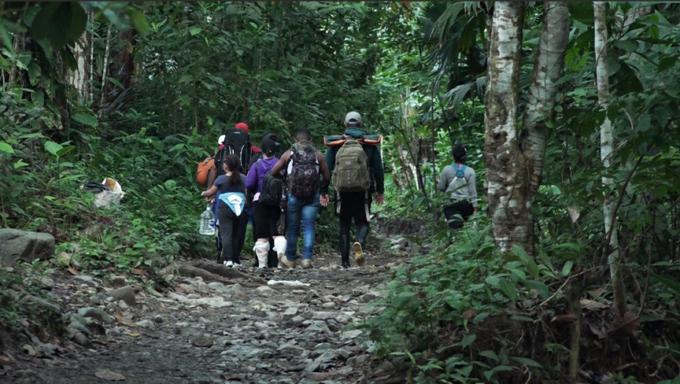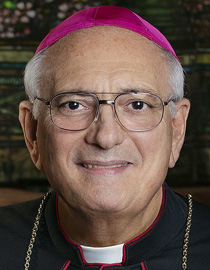
Faith

The 70-mile hike through the area is organized by Colombian drug cartels, which have used the same routes to transport drugs from Colombia to the United States. Now, the human cargo pays for itself and at its own risk as the migrants follow the often-misleading directions given by the cartels.

DiMarzio
A recent documentary by CNN featured some of its reporters making the trek through the dangerous Darien Gap -- a jungle that separates Colombia from Panama.
The program is a telling view of the lengths to which desperate migrants will go to find opportunity for a new life. The 70-mile hike through the area is organized by Colombian drug cartels, which have used the same routes to transport drugs from Colombia to the United States. Now, the human cargo pays for itself and at its own risk as the migrants follow the often-misleading directions given by the cartels.
In 2022 alone, almost 250,000 people made this dangerous crossing -- double the number of people from the prior year. The migrants come from various Latin American countries, yet there are also those from India and China, as well as other parts of the world. For those who are successful and have not died along the way, this perilous journey through Columbia ends in Panama.
Recently, Panama, Colombia, and Guatemala came to an agreement with the U.S. to establish regional processing centers for refugees in their countries. The U.S. would vet migrants who come to the centers for refugee resettlement or family reunification visas, as well as look for other legal pathways for them to enter the U.S. The opportunity at the centers would hopefully discourage asylum-seekers from taking the dangerous journey north to the U.S.-Mexico border. Hopefully, President Biden will follow through with the new program.
The social teaching of the church states that sovereign nations have an obligation to admit asylum-seekers in accordance with humanitarian legal standards. Migrants also have a right to migrate when they cannot find a decent life in their own country. The right to migrate is a controversial concept that sits in the middle of the immigration debate, with opponents arguing that entering a nation unlawfully is always forbidden and immigration proponents stating that legal pathways should be created to accommodate this right.
Some of the policies of the Biden administration -- which would deny asylum to those who have not claimed asylum in countries they have crossed before coming to the U.S. -- return to the harsh policies of the Trump administration. Unfortunately, this new "asylum ban" rule violates human rights and national and international law.
But what is the solution to this seemingly unsolvable problem?
A recent proposal by veteran Sen. Bob Menendez, D-New Jersey, strives to secure our borders by managing migration and refugees in the Americas. This proposal builds on the 2022 summit held in Los Angeles by Western Hemisphere nations trying to find workable solutions to this humanitarian crisis. The detailed plan deals with the root causes of migration, as well as allowing asylum-seekers and needed workers to enter the U.S. in an orderly fashion.
If the Menendez plan is put into effect, new legal pathways will be expanded to relieve the pressure on the southern border, as well as border processing for asylum-seekers. It also will expand the humanitarian assistance and development work within the sending countries and counter the transnational criminal organizations involved in human trafficking and smuggling.
This comprehensive plan is worth our attention and support. Unfortunately, our political structures presently seem geared toward politicizing almost every social problem -- especially immigration -- for political gain. It is necessary that we become interested in finding real solutions to this real human problem.
A long-term and sustainable structural response is badly needed to manage migration in our hemisphere. As the leading destination country in the region, the U.S. has the ability and responsibility to implement just solutions to this humanitarian crisis.
- Bishop Nicholas DiMarzio is retired bishop of the Diocese of Brooklyn, N.Y. He writes the column "Walking With Migrants" for Catholic News Service and The Tablet.
Recent articles in the Faith & Family section
-
Wounds, not scarsJaymie Stuart Wolfe
-
A special collection in the liturgy libraryFather Robert M. O'Grady
-
Witness to a Transfiguration in KenyaMichele Miers
-
Understanding the ScripturesScott Hahn
-
'Cabrini' does extraordinary job of bringing saint to lifeBishop Nicholas DiMarzio


















